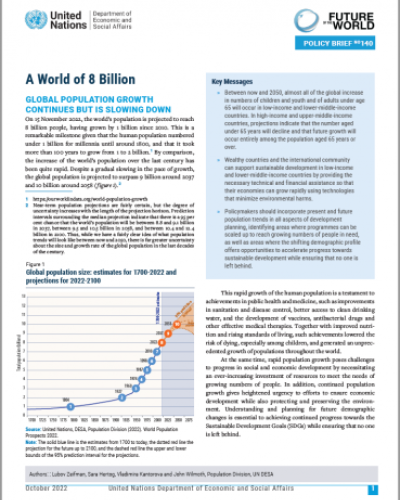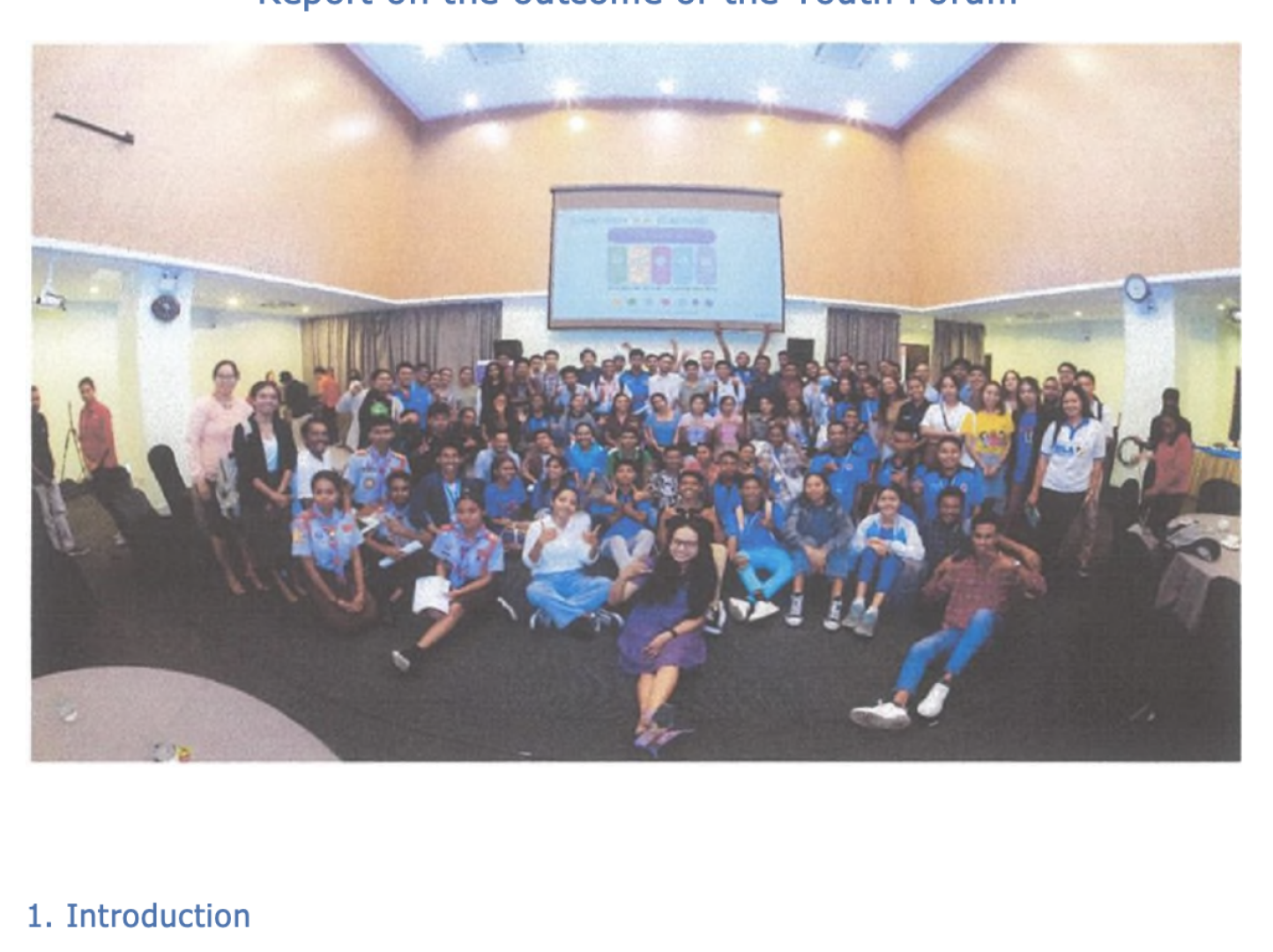UN DESA Policy Brief No. 140: A World of 8 Billion

On 15 November 2022, the world’s population is projected to reach 8 billion people, having grown by 1 billion since 2010. This is a remarkable milestone given that the human population numbered under 1 billion for millennia until around 1800, and that it took more than 100 years to grow from 1 to 2 billion. By comparison, the increase of the world’s population over the last century has been quite rapid. Despite a gradual slowing in the pace of growth, the global population is projected to surpass 9 billion around 2037 and 10 billion around 2058.
This rapid growth of the human population is a testament to achievements in public health and medicine, such as improvements in sanitation and disease control, better access to clean drinking water, and the development of vaccines, antibacterial drugs and other effective medical therapies. Together with improved nutrition and rising standards of living, such achievements lowered the risk of dying, especially among children, and generated an unprecedented growth of populations throughout the world.
At the same time, rapid population growth poses challenges to progress in social and economic development by necessitating an ever-increasing investment of resources to meet the needs of growing numbers of people. In addition, continued population growth gives heightened urgency to efforts to ensure economic development while also protecting and preserving the environment. Understanding and planning for future demographic changes is essential to achieving continued progress towards the Sustainable Development Goals (SDGs) while ensuring that no one is left behind.


















